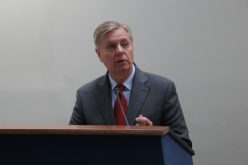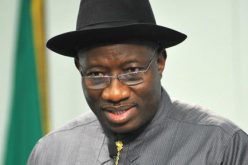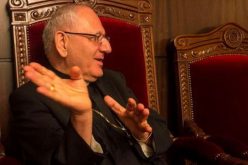 Washington — Among U.S. values, religious freedom is prominent, and it is a human right the United States vigilantly protects at home and spotlights in its foreign policy.
Washington — Among U.S. values, religious freedom is prominent, and it is a human right the United States vigilantly protects at home and spotlights in its foreign policy.
Secretary of State John Kerry, at his confirmation hearing, stated that religious freedom is “at the core of who we [Americans] are. … Carrying the banner of religious tolerance, diversity and pluralism is critical.”
Religious liberty is not just an American right protected under the U.S. Constitution, President Obama said early in 2013, “it is a universal human right to be protected here at home and across the globe. This freedom is an essential part of human dignity, and without it our world cannot know lasting peace.”
The Universal Declaration of Human Rights recognizes that every person, in every corner of the globe, has the right to freedom of thought, conscience and religion. This includes the freedom to change his or her religion or beliefs, and — either alone or in community with others, publicly or privately — to manifest his or her religion or belief in teaching, practice, worship and observance.
Freedom of religion, according to Denis McDonough, deputy national security adviser to President Obama, “is a key ingredient for stable, successful societies and a just world. We know that countries that truly protect religious freedom are more likely to develop and prosper. They’re more likely to have stable democracies.”
“We know that the lack of religious freedom — or discriminating against people because of their faith — can be a recipe for instability,” McDonough said in a speech in September 2012 on U.S. policy and international religious freedom.
“When people of faith are denied the opportunity to worship freely, or assemble in fellowship, grievances fester,” McDonough said. “It creates fissures and mistrust between faiths and sects. It fuels sectarianism as people pull back to the perceived safety of their fellow believers. It emboldens extremists. It can increase instability and the likelihood of violence and war. We’ve seen this throughout history. We’ve seen it during conflicts in our own time, from Northern Ireland to Lebanon to the Balkans. ”
Religious controversy, acknowledged U.S. Ambassador-at-Large for International Religious Freedom Suzan Johnson Cook, affects politics in many countries — one reason that the Obama administration has promoted religious freedom as an integral component of U.S. foreign policy.
Constant vigilance is required to protect religious freedom, Cook said in remarks delivered in April at the Catholic University of America.
“I don’t believe there is a religion that escapes being attacked in some corner of the globe,” said Cook, who travels the world espousing religious freedom. “I have talked with Muslims facing discrimination, Christians unable to openly follow their faith, Buddhists who aren’t allowed to practice their beliefs, Jews who encounter societal hatred. No group is immune from attack. That is why we defend everyone’s right to believe, or not to believe, according to the dictates of their own conscience. ”
The release of the International Religious Freedom Report for 2012 by the U.S. Department of State, scheduled for May 20, represents the continuing commitment of the United States to uphold the human right of religious freedom the world over.
The report, which assesses how governments for some 200 countries protect the religious freedom of their citizens, represents the annual effort by U.S. embassies around the globe to collect information from government officials, religious leaders, nongovernmental organizations, journalists, human rights monitors, religious groups, academics and others.
The report is mandated by the U.S. Congress under the International Religious Freedom Act of 1998 and is used by U.S. government agencies to shape policy, conduct diplomacy and inform assistance, training and other resource allocations. The U.S. secretary of state also uses the report to help determine which countries have engaged in or tolerated “particularly severe violations” of religious freedom, otherwise known as “countries of particular concern.”
Learn more about religious freedom at the State Department’s HumanRights.gov Web page and see the International Religious Freedom Reports.










